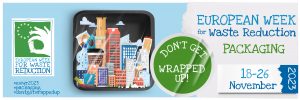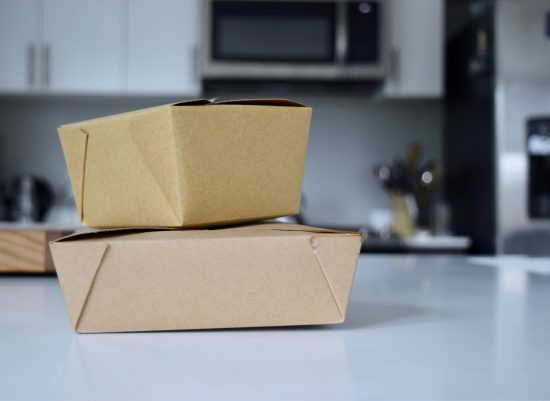Leggi questo articolo in italiano
Did you know that each European generates almost 180 kg of packaging waste per year? Packaging has a big impact on the environment, being one of the main users of virgin materials as 40% of plastics and 50% of paper used in the EU is destined for packaging. Data revealed by the European Commission attested that packaging waste increased by more than 20% over the last 10 years in the EU and, if we keep following the current production and consumption system, it will increase by another 19% by 2030. Going into detail about the different packaging waste, the most worrying one is plastic packaging waste, which is expected to increase by 46% in 2030. Therefore, the European Commission has proposed a regulation for more ambitious measures to reduce packaging and packaging waste. The proposed revision has three main objectives:
- Prevent and reduce packaging waste, pushing forward reuse and refill systems.
- Make all packaging on the EU market recyclable while economically sustainable by 2030.
- Decrease the use of virgin materials in the packaging sector, which will be included in the climate neutrality strategy by 2050.
Waste prevention is at the heart of the proposed packaging and packaging waste rules. The overarching measure to stop the rising trend of packaging waste generation is a reduction target of 15% by 2040 per capita per Member State, compared to the 2018 figures. This would lead to an overall waste reduction in the EU of some 37% compared to a scenario without changing the legislation. To achieve this target, the regulation proposes measures at the EU level such as more reuse and refill, packaging minimisation, and banning avoidable packaging for certain uses.
Which will be the impact of this proposal on consumers?
The proposal strongly pushes towards the recyclability of all packaging, which on one side will promote the ecodesign of packaging and, on the other, will guide consumers to play an active role in packaging waste reduction. Consumers will also have access to some products in reusable or refillable packaging or even packaging-free. To promote reuse and refill, the proposal defines mandatory reuse or refill targets and also bans certain types of unnecessary packaging. In terms of recycling, consumers will be guided on how to properly sort each packaging waste through a label showing the material and how it should be properly sorted. Finally, consumers will be introduced to deposit return systems for plastic bottles and aluminum cans.
What can public authorities do to meet the targets?
The proposal suggests specific targets to prevent packaging waste that will have to be respected by Member States: starting from a 5% reduction compared to 2018 by 2030, until 10% by 2035 and 15% by 2040. To reach these targets, a set of measures is proposed such as deposit and return schemes for reusable packaging, packaging minimisation through fees on single-use packaging, awareness-raising initiatives to inform consumers of the cost of packaging for each specific product, as well as obligations on companies to promote reuse or refill systems. It will be key to keep working on separate collection to improve packaging recycling performance through the implementation of high-convenience separate collection systems, the application of deposit-return schemes, the introduction of separate collection bins in public and commercial areas, and awareness-raising initiatives.
How does the proposal help small and medium companies?
A sustainable transition has impacts on the private sector: jobs related to single-use packaging will decrease significantly, but many more new green jobs will be created. Small and medium-sides enterprises (SMEs) are seen as well positioned to play a key and successful role in the green transition. The new more consistent rules at the EU level will give them predictability and legal certainty, which will push technological progress. It has been estimated that the suggested measures will create 600 000 low and high-skilled jobs in innovative SMEs, mainly in logistics, maintenance of infrastructure for take-back, dispensing, and refill in retail, as well as in the design of packaging and supply chains.
Sources and read more:
- Proposal for a revision of EU legislation on Packaging and Packaging Waste
- Factsheet on Packaging and Biobased Plastics
- Reloop briefing note on the Proposal
European Week for Waste Reduction 2023: Packaging
In line with the European Commission’s approach, we seek to raise awareness about the strong environmental impact of packaging, promoting a more sustainable consumption and production behavior. The EWWR is already getting ready for this 15th edition, from 18 to 26 November 2023, which will be focused on Packaging. The registrations will open in September. Stay tuned!

 EN (full site)
EN (full site) ITA
ITA FRA
FRA POR
POR ESP
ESP CAT
CAT DEU
DEU NED
NED HUN
HUN